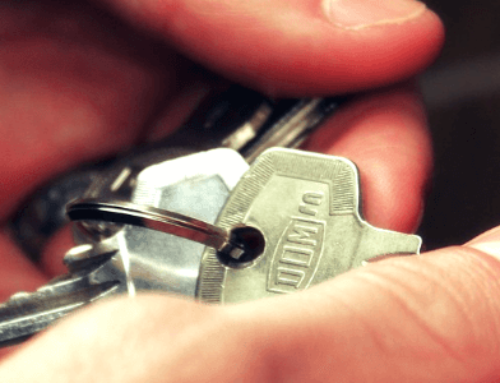Buying a home when you’re self-employed isn’t exactly a walk in the park on a beautiful day… it’s more like a stumble through the swamp during a hail storm. This doesn’t have to be the case though!
There are things you can do to make the entire home loan process far less exasperating. Being self-employed shouldn’t mean that you have to wither away in a rental property for the rest of your days or be forced into paying exorbitantly high interest rates when you’re just as financially stable as the non self-employed populace.
So what are the fundamentals of securing a home loan when you’re self-employed?
There’s no such thing as being too organised
There are so many lenders offering home loans nowadays that you’re going to find a great deal of variability between what is and is not needed in order to qualify for a home loan. However, it’s generally going to be the case that self-employed borrowers seeking home loan approval will be expected to have held an ABN and been operating a business for a minimum of two years. So if you’ve only just got your ABN and started shipping out those boutique Tupperware containers, you might want to put your property purchasing plans on hold for a while.
As is always the case, home loan applications will require a whole truck load of documentation, so you may be required to supply bank accounts, tax returns, BAS statements, and you may need to ask your accountant for a declaration. By staying organised and having as much of the appropriate documentation ready as possible, you’ll dramatically increase your chances for approval.
Do the numbers and know what to expect
Just because you’re self-employed, it shouldn’t mean that you find yourself at a disadvantage when it comes to accessing loan options. However, the fact of the matter is that being self-employed often comes with a variety of financial complications that aren’t present for regular employees. At the end of the day it all comes down to ‘income certainty’.
If it so happens that you have a rough couple of months finding customers or selling your wares, this could mean that you struggle to make your home loan repayments. Lenders know this which is why self-employed borrowers can often be an automatic red flag.
This doesn’t have to be the case though. The most important thing you have to focus on is establishing a steadfast and consistent financial record that shows a high income combined with minimal expenses. That way, when lenders crunch their numbers and assess your financial capability by your credit score and income, they should clearly see you have what it takes to repay a home loan.
Pay off your debts and keep on top of taxes
I know, that’s probably not the most attractive sub-title you’ve ever read but believe me, this will do absolute wonders for your situation. By keeping your taxes current you’ll always be able to present an up to date copy of your income history. More importantly though, taxes are going to be popular port of call for lenders to verify that you don’t have any outstanding payments and will generally pick on self-employed borrowers more so than employees. So keep this in mind next time you don’t feel like doing your taxes.
And speaking of outstanding payments, what’s your current debt situation look like? If it’s not looking too stellar, you’ll want to seriously prioritise paying off any debts you owe quick smart. If you’re unable to completely eliminate your debts then just do whatever you can to reduce them significantly.
This is an important step because lenders love to assess credit card history as it’s a useful determinate for understanding an individual’s ability to repay debt and the credit limits they’ve been allowed access to. So, never underestimate how deep your lender is willing to dig to ensure that you’re home loan material. Don’t let that scare you, just keep on top of your finances.
Don’t forget, you have options
So far you might be thinking that this is all very unfair and unreasonably complicated and why should I have to jump through so many hoops simply for being self-employed? The truth is however, that self-employed individuals have the means to borrow the same array of mortgage options as everyone else. All it means is that you need to prove you can handle it. Assuming you can put down the full deposit and show that you do in fact have an adequate financial track record, thank you very much, then you’ll have a much better chance at securing a good deal.
If you’re a small business owner, and perhaps aren’t able to access the necessary tax returns and financial documents needed for the approval of certain loans, one option you might want to look at is a Low Documentation Home Loan, sometimes called Low Doc Home Loans.
Low Doc Home Loans provide an alternative option for sole traders to verify their income status with differing types of financial documentation. This is particularly advantageous to self-employed borrowers who might only have access to say, bank statements but not PAYG statements. It isn’t the only option but depending on your circumstances it may be one worth considering.
Formulate a plan
Obviously buying a house isn’t something you do on a whim. Or at least, it probably shouldn’t be. I imagine this is something you’ve been thinking about for quite some time now, meaning that you’ve likely thought through your options. You no doubt have at least a rough idea of what you can and can’t afford, where and what you want to buy, and probably even the name of the dog you’re going to adopt as soon as you move in (it’s ‘Mortimer’ isn’t it?).
Basically what I’m getting at is that you need to have a plan. And as super duper smart and capable as I’m sure you are, you really need to talk with a mortgage broker long before you decide to buy anything. They will take you through all your options and exactly what you need to work towards financially in order to secure the best loan for your unique circumstances. In other words, don’t leave such an enormous decision up to chance and make a solid game plan for when that magical time comes for you to secure a killer deal on a home loan for that dream house of yours.







Leave A Comment